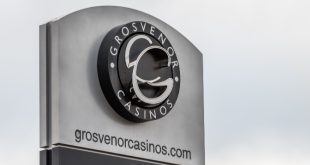Regulus Partners, the strategic consultancy focused on international gambling and related industries, takes a look at some key developments for the gambling industry in its ‘Winning Post’ column.
UK: football broadcast rights – a river runs through it…
The long-predicted – but apparently difficult to nail – entry of Amazon into the market for Premier League live broadcast rights finally happened this week. After initially failing to sell the two packages seemingly tailored for a tech company to enter the market, the Premier League has now granted one to Amazon, with BT securing the other. Two has become three in the UK live Premier League football broadcast market.
For three seasons from 2019/20, Amazon will stream 20 matches per season (10% share of live broadcasts), consisting of a full Boxing Day programme and another full midweek programme. It is reported that these matches were secured at a deep discount to the original reserve price.
The popular view is that the Premier League was hoping for a bidding war for these packages in order to drive up the price; and the absence of such indicates a failed experiment. However, there must be questions over how realistic that ambition could have been, and indeed over whether that was the Premier League’s main objective. Certainly, multiple bidders and a high price would have been nice, but the key step was surely to get an online “broadcaster” into the tent. With that now achieved, and significant continued growth in the international rights markets expected, the announcement yesterday that Premier League executive chairman, Richard Scudamore has decided to move on from his role by the end of the year hints at (to some extent) a job having been done. Scudamore’s successor will no doubt focus on increasing Amazon’s (and / or other tech companies’) involvement (and investment) as part of a longer-term strategy. Further, the media-driven wealth of EPL clubs made it to the front-page of the FT this week: that is not what failure looks like and aligning with consumer technology giants is a smart move in our view.
There can be no doubt that this is a significant landmark with broader implications. Amazon has dabbled in tennis and NFL streaming (dabbling for a US$180bn revenue business that is), but Premier League broadcast rights is the global premium product. This deal enables Amazon to continue to dip its toe (and a bit more) in the water of major sports live broadcasting, further accelerating the significant changes taking place to the way fans (and punters) consume sport.
There has been some speculation that big media and tech companies will be tempted by betting given the repeal of PASPA – and the move into sports rights will do little to dampen this. While there is some logic for UK, European and Asian businesses following this model (when allowed to do so), we would be sceptical of it taking hold in the US for two reasons. First, US-style gambling regulation is onerous for anyone not wishing to make it their prime means of income. Second, gambling simply isn’t big enough relative to the regulatory/reputation risk: Amazon spends roughly the same amount on R&D (US$23bn) as the entire online B2C sports betting market globally.
UK: In Parliament – Focus Shifts to Advertising and Treatment
The ghosts of political intervention past, present and future glided through Parliament this week as the Government responded on the timing of FOBT stake reduction and MPs expressed concern on both the availability of gambling addiction treatment services and on advertising and sponsorship.
In response to Parliamentary Questions in both the Commons and the Lords, the Government confirmed that betting shop operators would be “given sufficient time to implement and complete the technological changes for the reduction in maximum stake for Fixed-Odds Betting Terminals”. Taken at face value, this would seem to imply a fairly short lead-in to change; but it is likely that other considerations (such as time to prepare for business impact) may extend this window into next year.
The leading political figures in the anti-FOBT campaign have been remarkably supportive of the gambling minister, Tracey Crouch (Cons, Chatham & Aylesford) through the process and this may ameliorate some of the pressure on her to act immediately. However, having described the machines as a “social blight”,the Government may find it difficult to justify tarrying too long.
Elsewhere, the former Labour minister, Angela Eagle (Lab, Wallasey) and party colleague, Jim Cunningham (Lab, Coventry South) asked the Department of Health about the presence of gambling addiction treatment services in (respectively) Merseyside and the West Midlands. The admission by the Department of Health’s Steve Brine (Cons, Winchester) that he did not know what services were available will provide more grist to the mill of Labour’s review of gambling and mental health.
Elsewhere, Anne Main (Cons, St Albans) submitted a hat-trick of questions on whether greater constraints needed to be imposed on the marketing activities of gambling firms, with particular regard to perimeter boards in televised matches, in-play betting and the full enforcement of the 9pm watershed. Mrs Main’s local prelate, the Bishop of St Albans has also recently expressed concern over advertising. He was one of 19 Parliamentarians to endorse last week’s Respublica report on “advertising loopholes”.
US: betting legislation – NJ nearly ready?
New Jersey’s betting bill has passed the state house and senate unopposed, awaiting only gubernatorial scrutiny to become law.
The bill is in line with what most expected: licences tied to existing casinos and racetracks (with three brands per licence: a maximum of 30 participants); separate licence(s) required to be granted prior to operation; collegiate as well as professional sports (and athletics), but excluding NJ-hosted events and NJ teams (bad for mass-market engagement, possibly a relief for liability management); esports also limited to events without minors (which is a pretty significant limitation on the current landscape); web, mobile and in-venue allowed (including in-venue SSBTs); fixed odds and pool betting; material B2B providers require a full casino service licence; sports owners unable to participate in their sports (or potentially all sports) – so Golden Nugget excluded at least from NBA due to cross ownership of the Houston Rockets (thus c. 30% -100% of volume excluded); 8.5% landbased GGR tax, 13% online (+1.25% for racetracks) – no mention of integrity fees.
The state hopes for US$12m-17m in the first full year of operation, suggesting an anticipated market of c. US$100 – 140m (given the vast majority is likely to be online). This triangulates with our estimates of US$152m for ‘post launch glitches, pre-material mass-market penetration’ estimate and suggests a realistic expectation of a sports betting market c. 10x the size of online horseracing and c. 40% the size of the gaming market (broadly reflecting European mix).
Given the multiple licences provided, we can expect this market to become (fiercely) competitive over time (only between three and six are likely to thrive, in our view, but it wont stop others trying). However, in the short term Betfair’s licensed exchange position as well as TVG, FanDuel and casino presence (the latter with GAN and the aforementioned Golden Nugget – hence in part the new partnership with Meadowlands racetrack for betting) is likely to give it a material advantage in terms of speed to market and rapid impact, in our view.
There is a bigger issue (or danger) with New Jersey, though. It is a relatively populous state (9m) with a proven domestic gambling market (c. US$2.7bn landbased casino, about half domestic; c. U$250m online gaming, substantially all domestic; c. US$34m horseracing and likely c. US$10m DFS), as well as a relatively liberal regulatory approach. It is therefore likely to produce an attractive and working sportsbetting market – this is much more likely to be the exception than the norm, in our view.
UK: Ding Dong, Dacre has Gone
A rare shaft of sunlight permeated the gloom surrounding Britain’s gambling industry this week with the news that its perennial bogeyman, Paul Dacre would be hanging up his boots as editor of the Daily Mail. It was under Dacre that the Mail waged a vicious and ultimately successful campaign against Tony Blair’s plans for resort casinos in Great Britain in the period between 2005 and 2007. In so doing, he became the gambling industry’s most feared opponent on Fleet Street.
In reality, the killing of the so-called ‘super casino’ proved to be the end of the Mail’s moral crusade against gambling as the paper moved on to a succession of other areas ripe for hand-wringing and moral outrage. In recent times, the paper has seemed happy to let other titles take the vanguard on gambling matters – The Times, Guardian and Mirror for instance have all devoted far more energy and column inches to the prosecution of FOBTs and online gambling.
On one occasion in 2007, Dacre’s moralising back-fired on him as the Observer reported on the“incredible hypocrisy” of the Mail’s involvement in online gambling. The Mail drew condemnation from the Salvation Army amongst others after it was revealed that its online bingo site was offering players the chance to win children’s parties (a breach of the industry code) and did not feature any ‘responsible gambling’ information. Within a week, the site had been taken down.
The Mail’s new editor, Geordie Greig is understood to be different to Dacre in many respects (notably on the subject of EU membership) but it is unlikely he will cut gambling too much slack. Nevertheless, the prospect of Paul Dacre clearing his desk in the editor’s office will be received with sighs of relief from an increasingly embattled industry.









